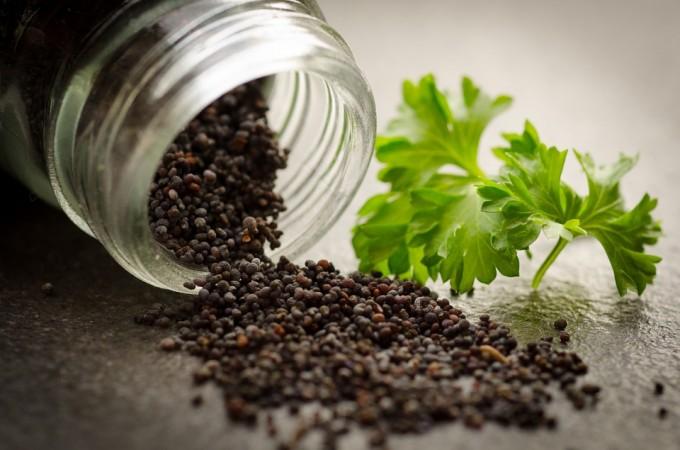
Foods are not just limited to providing different tastes; there are some foods that can cause hallucinations. Some of these items are so common that probably you already have them in your kitchen. But, aren't aware that taking it in excess amount can cause hallucinations.
Here is a list 5 such foods, take a look:
Nutmeg
Nutmeg contains an organic compound known as myristicin and that has mind-altering effects if taken in large quantity. If someone eats about 5 to 15 grams of nutmeg, the person can experience hallucinations.
According to an ABC report, after taking large doses of nutmeg, people suffer from severe gastrointestinal reactions like nausea, vomiting and diarrhoea. It's to be the noted that the visual, auditory or sensory hallucinations do not set in until hours after taking the spice.

Poppy seeds
Poppy seeds contain certain amounts of morphine. However, the morphine content in poppy seeds varies. Some varieties, such as Spanish poppy seeds are strong enough to provide a full dose of morphine. In fact, according to research published in the Journal of Forensic Sciences, 40 grams of Spanish poppy seeds, which is around 5 tablespoons, is equal to the 10-milligram dose of morphine.
But, don't worry eating a poppy seed bagel or muffin won't really put you in an opium-induced state of euphoria. However, you might fail a drug test after eating it.
Stilton cheese
Stilton cheese can make you experience some unusual and vivid dreams. In fact, in a survey conducted by the British Cheese Board, it was reported that 75% of volunteers involved in the research experienced vivid dreams after they ate 20 grams of Stilton cheese before sleep.
Unripe Mulberries
Unripe mulberries can give you a trippy experience and can also upset your stomach. They produce a milky juice that stimulates the nervous system and cause either nausea or hallucinations.

Caffeine
Caffeine is a central nervous system stimulant and temporarily wards off drowsiness and restores alertness. The researchers at Durham University said: "High caffeine consumption could be linked to a greater tendency to hallucinate."
Lead author, Simon Jones, a PhD student at Durham University's Psychology Department, said: "This is a first step towards looking at the wider factors associated with hallucinations."












!['Had denied Housefull franchise as they wanted me to wear a bikini': Tia Bajpai on turning down bold scripts [Exclusive]](https://data1.ibtimes.co.in/en/full/806605/had-denied-housefull-franchise-they-wanted-me-wear-bikini-tia-bajpai-turning-down-bold.png?w=220&h=138)
![Nayanthara and Dhanush ignore each other as they attend wedding amid feud over Nayanthara's Netflix documentary row [Watch]](https://data1.ibtimes.co.in/en/full/806599/nayanthara-dhanush-ignore-each-other-they-attend-wedding-amid-feud-over-nayantharas-netflix.jpg?w=220&h=138)



